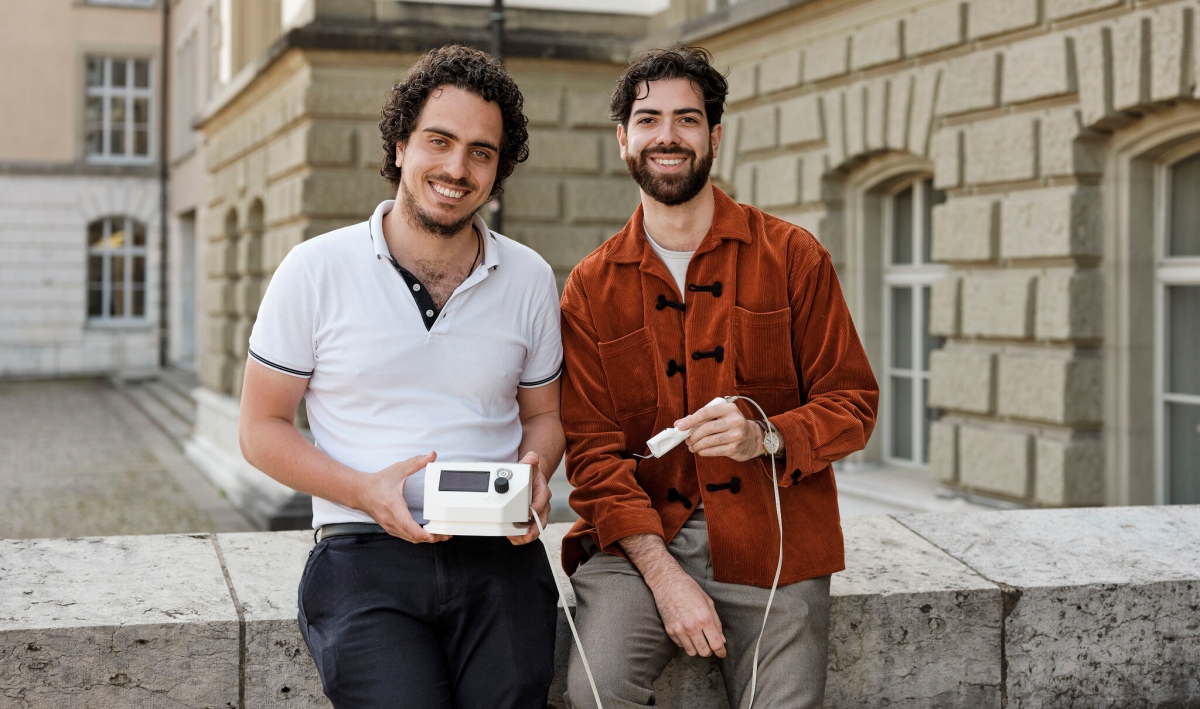
Powered by the Gebert Rüf Foundation, the InnoBooster program offers selected university-based high-potential projects CHF 150’000 each to accelerate their market entry. Since October, nine projects have been selected - this article focuses on the four life sciences companies in the cohort.
Founded by Giorgio Ramadori, as a spin-off of the University of Geneva, DIATHERIS aspires to improve treatments for type 1 diabetes. Despite being suboptimal due to the challenge of obtaining proper glycemic control without the risk of life-threatening hypoglycemia and ketoacidosis, insulin therapy remains the only option for type 1 diabetes (T1D) patients. Moreover, the lipogenic action of therapeutic insulin causes overweight and is understood to be a strong contributing factor to cardiovascular co-morbidities in T1D patients. Diatheris is developing a first-in-class therapeutic solution to overcome these limitations and improve T1D management. This proprietary approach is based on a small protein called S100A9, which exploits an insulin-independent pathway. The treatment has shown remarkable results in combination with low-dose insulin, to improve glycemic control (normalising glycemia) without the risk of hypoglycemia and ketoacidosis.
Procavea Biotech | Tom Edwardson, ETH
RNA-based therapies have transformative potential in medicine; however, the limited delivery technologies available to turn these molecules into effective drugs, hold back their true power. Procavea Biotech has developed a unique proprietary RNA delivery platform based on nonviral protein cages, which, compared to approved delivery methods and those in development, promises higher stability, engineerability, and easier manufacturing. Although a handful of RNA-based therapies have been approved, getting these molecules to organs other than the liver poses a significant challenge. Leveraging the modularity of its delivery system and the programmability of genetic medicine, the startup aims to address currently intractable disease targets with new RNA-based drugs.
Eviive | Kevin Yim, University of Zurich
Sepsis is currently detected using a standard-of-care approach that is invasive. Founded in 2022, Eviive is developing IMPASS (Immune-Pathogenesis Surveillance System), a novel and proprietary technological platform enabling a non-invasive diagnostic and disease monitoring of sepsis patients. The solution is based on liquid biopsies, which are derived from analysing tiny body particles called extracellular vesicles (EVs). Combining new revolutionary liquid biopsy analyses, advanced machine learning, and novel biomarker discovery, the solution is poised to revolutionise disease management.
DermatoTherma | Davide Paparo
Cutaneous Leishmaniasis remains one of the most widespread yet unaddressed tropical diseases, affecting over 1 million annual incidences in 90 nations worldwide. Traditional pharmaceutical treatments such as drug injections can lead to severe side effects, with a few instances even resulting in patient fatality. While potentially safer, alternative medications are prohibitively expensive and remain largely inaccessible for the affected. DermatoTherma is developing a new device, CLARA, as a non-invasive thermotherapy device that leverages radiofrequency heating technology to offer an effective and affordable solution for patients. Besides treating Leishmaniasis, the versatile platform technology is apt for any medical scenario where heat treatments are beneficial, enabling scalability and company growth.
(RAN)
Photo: Dermato co-founders L-R: Ian Caetano Rodrigues Häusler and Davide Paparo























































Please login or sign up to comment.
Commenting guidelines